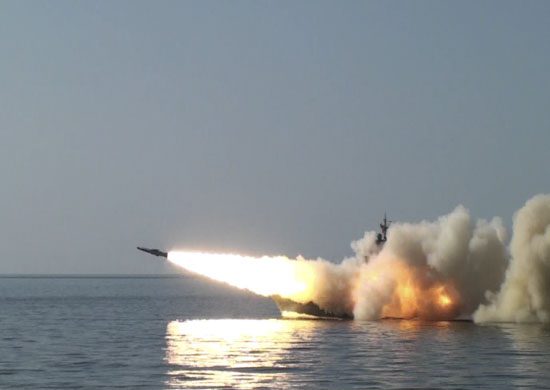
One week after the visit of Japanese Prime Minister Fumio Kushida to Ukraine, the Russian ministry of defence announced on Tuesday, March 28th that it had carried out tests of anti-ship missiles in the Sea of Japan.
The supersonic Moskit-type cruise missiles used in the tests have both conventional and nuclear warhead capabilities. Two Russian ships that were engaged in the exercise were attacking a mock enemy target. “The target, located at a distance of about 100 kilometres, was successfully hit by direct fire from two Moskit cruise missiles,” the ministry said on Telegram, noting that its naval air forces monitored “the safety of the combat exercise.”
No damage was observed by the Japanese government in the area where the tests took place. The U.S. Seventh Fleet did not immediately respond to requests for comment on the Russian operation.
The Japanese foreign ministry has expressed deep concern about the intensification of Russian military movements in the vicinity of Japan observed in recent months. Russia reported last week that it had flown into airspace over international waters in the Sea of Japan under a “planned flight,” according to the Russian government. Earlier this month, the Russians also conducted an underwater strike of a Kalibr cruise missile in the Sea of Japan against a land target 621 miles away.
Japan, which has joined the international sanctions against Russia, is alarmed by Moscow’s announcement of the deployment of nuclear warheads in Belarus. Foreign Minister Yoshimasa Hayashi asked Russia and Belarus to renounce these moves “that would further increase tensions.”
Japan is alarmed about the contagion of the conflict, and the parallels that can be drawn between the situation in Eastern Europe and the situation in Asia. A few months ago, Hayashi said: “Ukraine today may be East Asia tomorrow.” The dispute between Russia and Japan over the Kuril Islands is still not resolved and justifies the alarm of the Japanese government.
